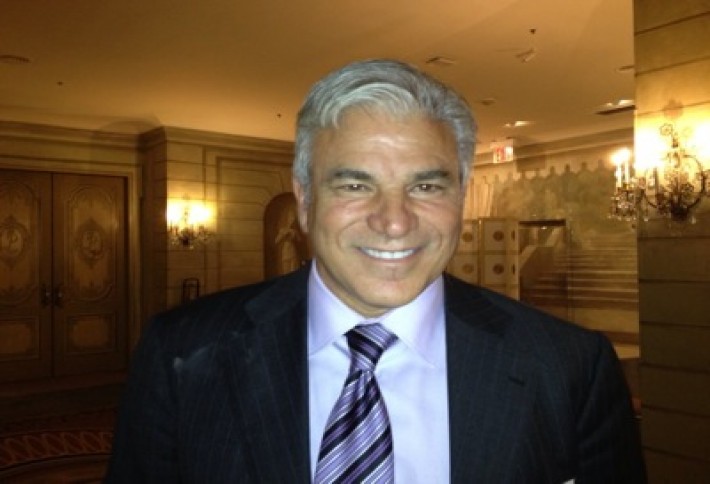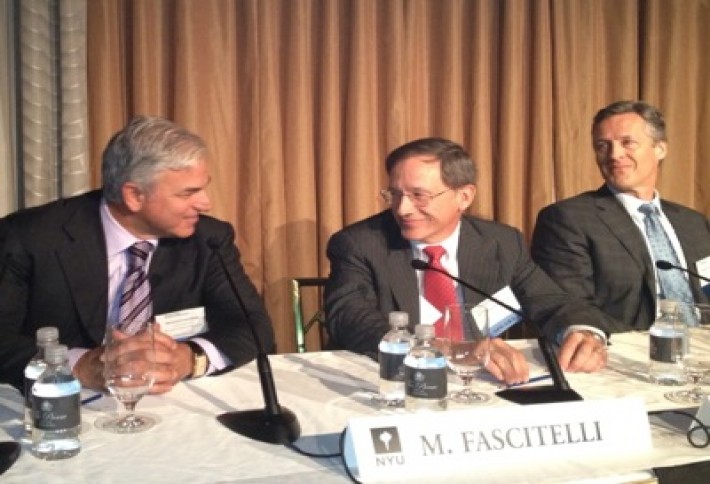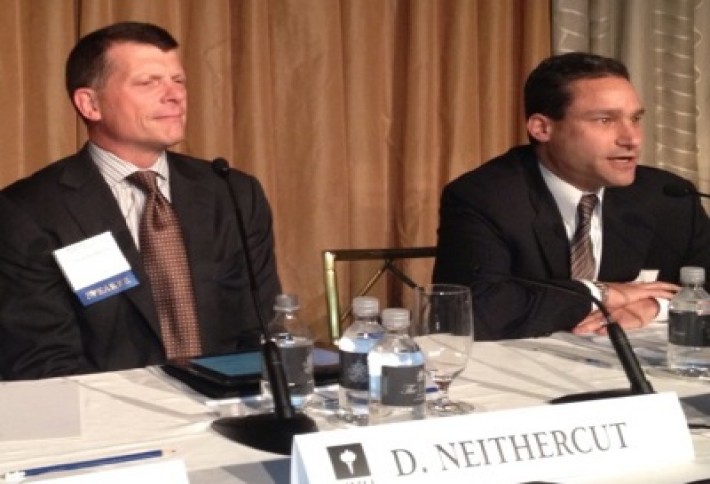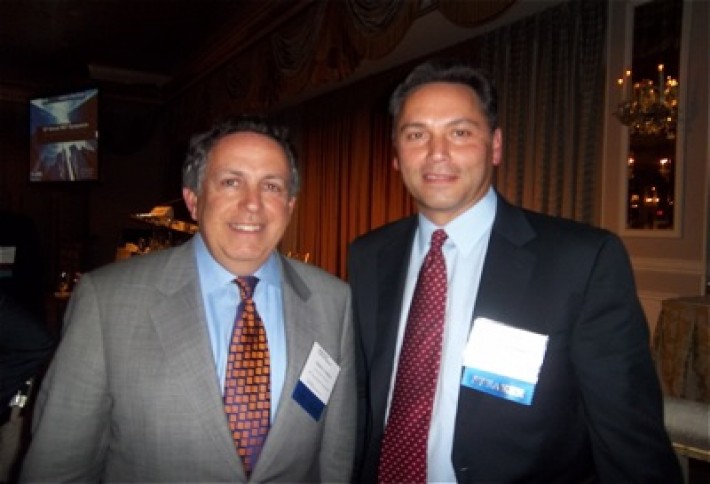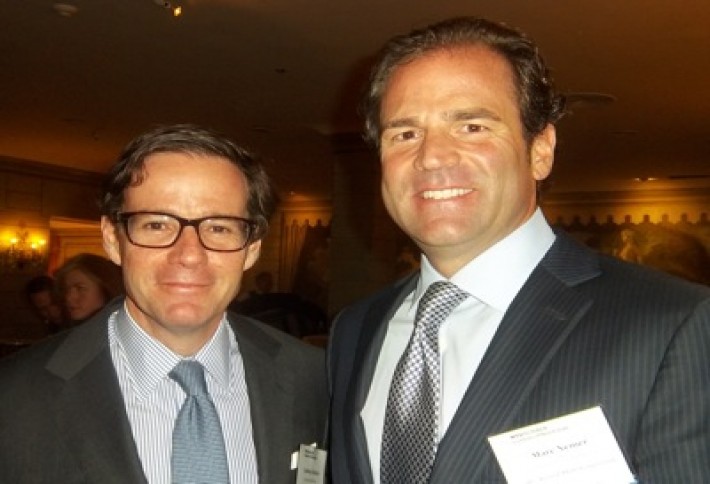Fascitelli: Where the M&As Went

We hardly think it's goodbye but still we grabbed the chance Thursday to snap Vornado CEO Mike Fascitelli and those pearly whites one last time before his resignation takes effect on Monday. "In three days, I'm going to be irrelevant," he joked--all the more reason for one last dose of his $&*!@^# candor.
Why have there been so few REIT M&As lately? "People don't want to give up their companies," he said Thursday at NYU Schack's 18th Annual REIT Symposium, which we believe is his last scheduled speaking gig. "Even if it's a $#&! company, it's their $#&!company." To make an acquisition work, the buyer has to pay the shareholders, pay a premium (the seller's not just going to give the company away), and win the bidding. And all that has to happen on a large scale since a small acquisition won't move the needle for any given REIT, he says. And once a REIT has bought a big company, he wonders about the real opportunity to improve what's already there.
Public Storage CEO Ron Havner (center, with Mike and Green Street Advisors' Mike Kirby) adds banker and lawyer payouts, plus items like severance to outgoing personnel, to a merger's costs.
Equity Residential CEO David Neithercut (left, whom we snapped with Morgan Stanley US real estate investment banking head Seth Weintrob, with microphones provided by Bob Barker) says oodles of elements have to align for a merger to come together: access to capital, a positive stock market, a willing seller, and a strategic reason for the acquisition. Mike says as many as 60 of the REITs his firm tracks are over $2.5B. Operating efficiencies are already maxed out at that level, so an acquisition by any of those won't further efficiency of scale.
We also snapped Sunrise Senior Living CEO Mark Ordan and AvalonBay president Tim Naughton, who added CEO to his title last month. Tim notes that 35 multifamily REITs existed in the '90s and there are only 12 today. He's unsure of the appeal of going public now. Unless a multifamily company has absolute control of the real estate, how do you get to an IPO, he wonders, adding that if even Archstone couldn't do it, the idea doesn't seem all that compelling.
Gramercy Capital CEO Gordon DuGan (with Cole Real Estate Investments CEO Marc Nemer) says partnerships come about to manage risk, especially at his company. He joined last summer from W. P. Carey to get Gramercy back on track and steer it toward net lease. Gordon says he would've loved to go solo to re-acquire the $470M of Bank of America branches it got last summer, but Gramercy's new, more conservative bent won't let it get out over its skis, and so the investor brought in Garrison Investment for a 50/50 JV. Marc expects a lot of consolidation in the net lease REIT space. Moments before we took this pic, American Realty Capital Properties announced an end to its attempts to take over Marc's company. Now, Marc can continue with plans to merge his company into its net lease REIT and go IPO.
